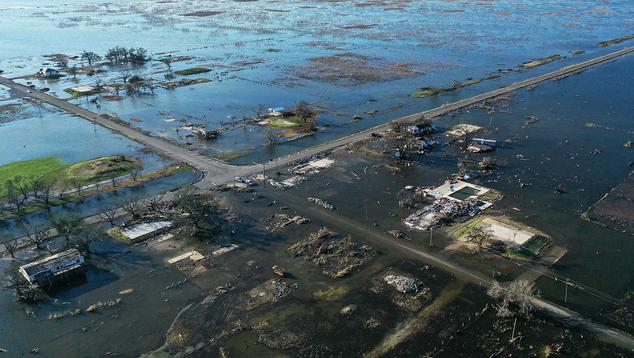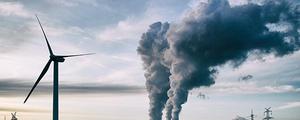Story Highlights
- Slim majorities have ability, resources to recover from extreme weather
- Less than half can depend on community, local government in a natural disaster
- No more than four in 10 say community is prepared, working to address climate change
WASHINGTON, D.C. -- As floods, hurricanes, heat waves and wildfires continue to batter the U.S., research from the Gallup Center on Black Voices finds Black and Hispanic Americans expressing lower levels of confidence and preparedness and reporting less access to resources than White adults.
On just one measure -- their community taking action to address the larger issue of climate change -- do all racial and ethnic groups give similarly low ratings.
Most have the bare minimum: weather warnings and someone they can call for help.
Wide majorities of all racial and ethnic groups “agree” or “strongly agree” that they have access to reliable warnings and information about potential natural disasters and that they have someone they can call for help in the event of extreme weather. Still, White Americans exceed both Black and Hispanic Americans by about 10 percentage points on each measure.
Slim majorities of Black and Hispanic adults believe they personally have the ability and resources to recover and have taken steps to prepare.
Between 53% and 56% of Black and Hispanic adults agree they could recover and rebuild, have the resources to do so or have taken steps to prepare their household for a natural disaster or extreme weather event. Meanwhile, between 65% and 72% of White Americans agree across these measures -- indicating their greater degree of preparedness and ability to recover.
Most Black and Hispanic adults lack confidence in their community or local government in an extreme weather event.
Less than half of Black and Hispanic adults agree that they can depend on their community or local government in a natural disaster. Less than half also say their community would have the resources necessary to recover and rebuild. In contrast, majorities of White adults say they can depend on their community and local government, and that their community has the resources they need to recover.
The area of greatest divergence between racial/ethnic groups is on perceptions that they can depend on their community in the case of a natural disaster or extreme weather event. Compared with White Americans, the rate of agreement is 13 points lower among Hispanic adults and 18 points lower among Black adults.
Black, Hispanic and White adults alike mostly do not agree that their community is prepared for extreme weather or is taking steps to combat the larger issue of climate change.
Of all of the items measured in this study, each racial/ethnic group is least likely to say their community is taking steps to address climate change or that it is adequately prepared for natural disasters.
Roughly one in three Black, Hispanic and White adults each agree that their community is taking steps to address climate change. Meanwhile, less than half of White (47%) and Hispanic (41%) adults -- and barely more than a third of Black adults (35%) -- believe their community is prepared for extreme weather.
One in seven Black adults have relocated because of extreme weather.
Fourteen percent of Black Americans report having relocated permanently or temporarily as a result of extreme weather, slightly higher than the rate among White Americans (8%). Hispanic Americans fall in between at 11%.
When asked if they could relocate permanently or temporarily because of extreme weather, a small majority of White Americans (56%) say they could, while less than half of Black (49%) and Hispanic Americans (45%) report the same.
Black, Hispanic and White Americans report having experienced various weather events, such as wildfires, hurricanes and tornadoes, at generally similar rates -- though White adults are slightly less likely to report having experienced a flood, and Black Americans are slightly less likely to have experienced a drought.
Bottom Line
2023 has been a notable year for abnormal weather events, which have caused considerable impact to life and property. According to the National Oceanic and Atmospheric Administration, it is very likely that these types of events -- floods, hurricanes, heatwaves, tornadoes, wildfires and more -- will increase in frequency and/or severity in the coming decades.
These findings from the Gallup Center on Black Voices reveal racial and ethnic disparities in perceptions of preparedness and support -- indicating that Black and Hispanic Americans are particularly vulnerable to the physical, emotional and economic impacts of these events.
While each racial/ethnic group reports experiencing various weather events at generally similar rates, Black and Hispanic Americans do not express the same levels of confidence that White Americans do in their community and local government to prepare and react. Black and Hispanic adults are also less likely to say they could relocate if need be.
To stay up to date with the latest Gallup News insights and updates, follow us on X.
Learn more about how the Gallup Panel works.
Subscribe to receive email updates on Gallup's latest insights and historical findings on the experiences of Black Americans. Access the latest from the Gallup Center on Black Voices.




